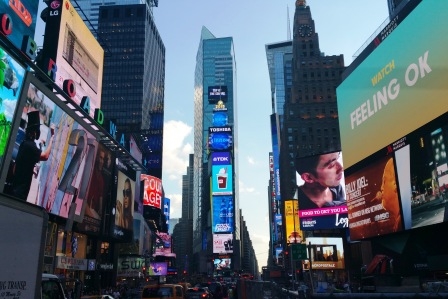E-Commerce Startups, Legacy Stores Grapple With Changing Retail Scene

The changing of the guard transforming retail is accelerating.
Sears, the nation’s first “everything store,” is teetering toward bankruptcy after years of stagnation as industry leaders prepare to gather in New York at the National Retail Federation’s annual conference. Yet, new startups—aided with tech tools like artificial intelligence, chatbots, and the like—are trying to reinvent how to connect shoppers with the goods they want to buy.
“[Sears has] amazing brands and the marketing from that, but this shows that it’s possible to lose traction with customers,” says Pano Anthos, managing director of XRC Labs in New York. “The key question is how do [retailers] ensure they’re really delivering real value to the customer?”
While it seems obvious that retailers’ focus should be on the customer, industry experts say it’s difficult to achieve in practice. Consumers, who are now demanding more convenience and customization, have access to a greater number of products than ever before. And, they are bombarded with advertisements for them nearly 24 hours a day.
“I think the world is getting increasingly noisy,” says Sarah LaFleur, founder and CEO of MM.Lafleur, an e-commerce retailer of women’s professional clothing. “Your inbox is unmanageable now; marketing e-mails are a dime a dozen.”
But even as legacy retailers lost touch with customers who have flocked to shopping online, e-commerce startups like MM.Lafleur do see value in having brick-and-mortar locations. Except now, they are seeking to redesign the shopping experience. “We don’t have any merchandise on the floor. The shopper is working one-on-one with a stylist for 60 minutes,” she says. “You’re only seeing clothing that we think works best for you. It’s an enjoyable way to spend your time.”
Even for the online-first brands that do have inventory in the showrooms—think luggage maker Away or eyeglasses from Warby Parker—the key word is personalization. “The issue is being closely aligned with the customer,” Anthos says.
The NRF’s 2019 conference, which starts Sunday, is expected to draw more than 50,000 retailers and feature its third annual Innovation Lab showcasing retail-oriented technologies, including virtual reality, robotics, smart check-out, and others. And, of course, a topic of much discussion will be Amazon.
“Our speakers will share their unique perspectives on retail, providing insights on how to create a culture of collaboration, adapt to shifting consumer tastes, and redefine business models to shape the future of the industry,” Matthew Shay, NRF president and CEO, said in a press release.
Sutian Dong, founder and partner at Female Founders Fund in New York, says she believes a key way to personalize shopping—and, therefore, spur sales—is to create “experiences” consumers enjoy. “You’re really almost crossing that fourth wall and touching consumers where they are” whether that’s online or in the store, she says.
For example, Dong points to beauty retailer WinkyLux, which opened a “fully-immersive” store in New York’s Soho neighborhood for which customers buy $10 tickets (applicable as credit on purchases) designed to “spark imaginations, create shareable content, and foster opportunities to connect with fellow beauty lovers and friends.” (WinkyLux is a portfolio company of Female Founders Fund.)
At the store, merchandise is displayed in themed rooms tailor-made for Instagram posts. “This is the start of what’s going to happen in the retail and mall landscape,” she says.
(7)

